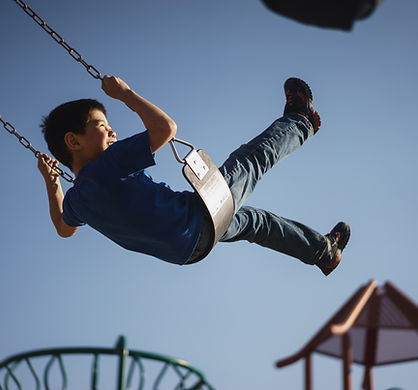5970 Centre St S, Unit 100 Calgary, AB, T2H0C1
Help us fundraise for a medium Trexo Robot
Concussion Treatment for Kids and Youth

Understanding Concussions: The Importance of Early Treatment for Children
Concussions are a significant concern, especially for children, whose brains are still developing and who are often involved in activities that increase their risk of head injuries. At the Canadian Centre for Development, we are dedicated to educating parents about the seriousness of concussions and the importance of seeking prompt and effective treatment. This page aims to provide you with essential information about concussions, their symptoms, and the steps you should take if you suspect your child has sustained one.
What is a Concussion?
A concussion is a reversible neurological dysfunction caused by a direct blow to the head or indirectly through forces transmitted to the head. It is essentially a metabolic, physiological, and microstructural injury to the brain, often presenting as confusion and memory loss. Concussions can cause neuron disruption, leading to chemical changes in the brain that manifest as headaches, dizziness, and mood changes. It's important to note that only 10% of concussions result in a loss of consciousness, so the absence of this symptom does not rule out a concussion.
Without proper care, a concussion can lead to chronic headaches, memory issues, and emotional disturbances. This condition is known as persistent post-concussion syndrome. Moreover, repeated concussions increase the risk of cognitive decline and neurodegenerative diseases. However, with the right management and rehabilitation, most people recover fully. Tailored plans that include rest and the right forms of movement are crucial to recovery.




What to Expect from a Concussion Treatment
Research has identified various concussion phenotypes, including
-
autonomic/cardiovascular,
-
vestibular,
-
ocular motor,
-
cervical,
-
cognitive,
-
mood-related,
-
and post-traumatic headaches.
Each phenotype requires a tailored treatment approach. For example, vestibular issues may involve balance and motion difficulties, while ocular motor problems affect visual tasks and light sensitivity.
At the Canadian Centre for Development, we conduct detailed assessments to identify the specific phenotypes affecting each patient and develop customized treatment plans.
What to Expect from the Canadian Centre for Development
Our approach to concussion management includes:
01
Comprehensive Assessments: We conduct 2- part thorough evaluations using screening questionnaires and physical assessments to understand the full extent of the injury.
02
Individualized Treatment Plans: Based on the assessment, we create tailored rehabilitation programs that address all identified phenotypes.
03
Collaborative Care: We work with other health professionals, such as psychologists, dietitians, and optometrists, to provide holistic care.
04
Regular Follow-Ups: Our team provides regular follow-up appointments to monitor progress and adjust treatment plans as needed.


Why Should We Care About Concussions?
Concussions are more common than many people realize. In the United States alone, approximately 3.8 million concussions occur annually, with about 50% going unreported. The effects of a concussion can be long-lasting, with 43-56% of individuals not returning to their functional baseline after six months.
Unfortunately, many healthcare professionals, including family medicine residents, ER physicians, and nurse practitioners, may not always provide accurate diagnosis and management recommendations for mild traumatic brain injuries (mTBI).
Recognizing a Concussion
Understanding the symptoms of a concussion is crucial for timely intervention. Common symptoms are categorized into physical, cognitive, sleep-related, and emotional effects. These can include headaches, dizziness, memory issues, difficulty concentrating, sleep disturbances, irritability, depression, and anxiety. Symptoms may appear immediately or be delayed and can evolve over the first few hours following the injury.
If you suspect your child has a concussion, it is essential to stop any physical activity immediately and seek medical advice. Continuing activities can exacerbate symptoms and prolong recovery.




